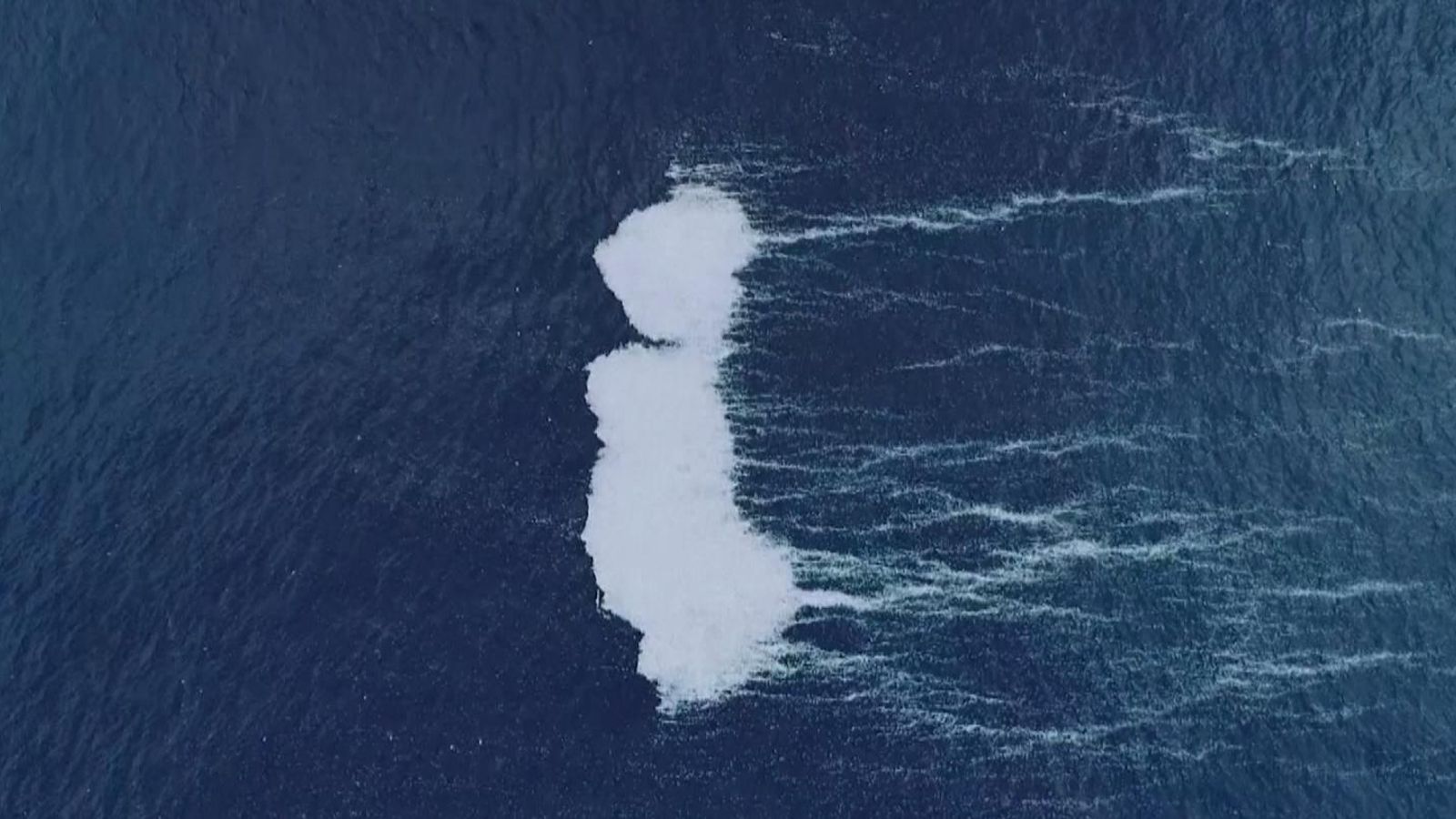An investigation has been ordered after the world’s second-biggest trawler shed more than 100,000 dead fish into the Atlantic, sparking claims they were dumped deliberately.
The spill from the FV Margiris off the French coast was caused by a tear in the super trawler’s net, according to the fishing industry group PFA, which represents the vessel’s owner.
Footage of the giant floating carpet of dead fish in the Bay of Biscay was taken by environmental campaign group Sea Shepherd France.
France’s maritime minister Annick Girardin has described the images as “shocking” and said she had asked the country’s national fishing surveillance authority to investigate.
The fish were blue whiting, a sub-species of cod, which is used by the industry to mass-produce fish fingers, fish oil and meal.
Sea Shepherd France has cast doubt on claims it was accident and believes the fish were discharged on purpose.
The group’s head, Lamya Essemlali, said: “It’s forbidden for a fishing vessel to throw overboard bycatch.
Marine Le Pen tells followers ‘leave now if you want to go’ as far-right party defections shake election hopes
British girl ski death: Man charged with manslaughter after five-year-old dies following ski slope collision in French Alps
Eric Zemmour: Far-right French presidential candidate convicted of inciting racial hatred over migrant children comments
“It is supposed to bring the bycatch to port and to make a declaration.
“The EU regulation has been implemented so that we can reduce the non-selective fishing methods because it’s very demanding, time-consuming and costs money for a fishing vessel to go back to port and unload the bycatch, and then go back at sea.
“So the temptation is big for these vessels at sea without any witness, any control, to just throw overboard all the bycatch and stay in the area, and keep on fishing.”
She added: “There is total impunity at sea. There is no control, no witnesses and no fines.
“There is a lot of money to be made and we have to improve the controls at sea, we have to put remote e-monitoring cameras onboard all the fishing vessels.”
Trawlers like the Margiris use giant drag nets more than a kilometre long and process the fish on-board.
Ms Essemlali said: “It has an impact on the fish population itself but also it has an impact on the predators, like dolphins, because the fish that these super trawlers are fishing are the main preys of dolphins and sharks. And basically, we are driving dolphins to starvation.”
Thousands of dead dolphins have washed up on France’s Atlantic coast over the past years.
Following protests by activists against super trawlers, the Margiris was forced to leave Australian waters in 2012.
Traffic data by marinetraffic.com on Friday showed the vessel, which is owned by the Dutch company Parleviliet & Van der Plas and sails under the flag of Lithuania, was still fishing off the French coast.






















